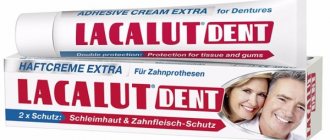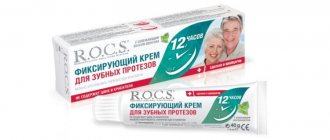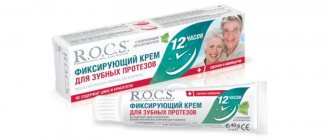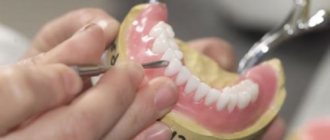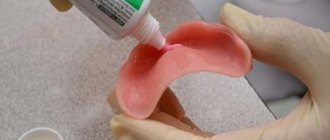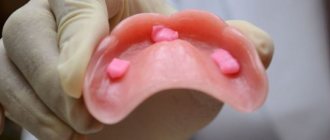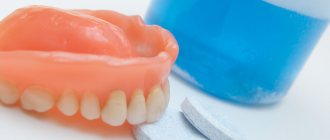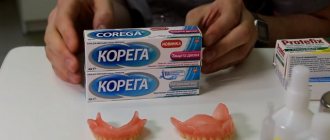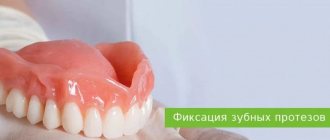PRESIDENT Garant cream for fixing dentures with a neutral taste
Basic concepts:
Company - Limited Liability Company "Premier Product", location address: Moscow, st. Elektrodnaya, 9, k.B
User is a visitor to the Internet, including the Company’s website www.presi-dent.ru.
Personal data - any information that the User independently provides to the Company by filling out Applications using feedback forms on the Company’s website or otherwise in the process of using the website www.presi-dent.ru.
Privacy Policy - this Privacy Policy, including the User Agreement.
1. The Privacy Policy represents the rules for the Company’s use of Personal Data of Internet users (hereinafter referred to as the User) arising when using the website www.presi-dent.ru, including, but not limited to, filling out Applications using the feedback form (call from a Company employee or a letter written by a Company employee to the User’s email address) and other actions related to using the site www.presi-dent.ru.
2. The User Agreement is an integral part of the Privacy Policy concluded between the Company and the User in the process of using the Company’s website.
3. By concluding the User Agreement, the User, of his own free will and in his own interest, consents to processing, including collection, systematization, accumulation, storage, (clarification, updating, change), use, transfer to third parties, depersonalization, blocking, destruction, etc. incl. using automation tools or without the use of such means, your Personal data, which, depending on the purpose (feedback form in the form of a Request for a call back from a Company employee, a written message from a Company employee to the User’s email address, etc.) includes , but not limited to the following Personal Data: last name, first name, patronymic, contact phone number, email address of the Company, for the purpose of providing services to the User.
4. The Company processes the User’s Personal Data in accordance with the requirements of Federal Law dated July 27, 2006 N 152-FZ “On Personal Data” and only to the extent necessary for the Company to provide services to the User.
5. The User agrees that the consent given by the User in electronic form on the website www.presi-dent.ru is a consent that fully complies with the requirements of the legislation on Personal data and allows confirming the fact of its receipt by the Company.
6. The Company does not verify the accuracy of the Personal Data provided, believing that the User acts in good faith, carefully and makes every effort to keep such data up to date.
7. This User Agreement comes into force from the moment the User begins using the Company’s website and is valid indefinitely.
8. The subject of personal data has the right to withdraw his consent to the processing of his Personal Data by notifying the Company in writing at
9. The Company protects the User’s personal information by taking appropriate security measures against loss, theft, unauthorized access, disclosure, copying and modification of information by third parties.
10. The Company's website uses cookies and similar technologies to ensure maximum convenience to the User by providing personalized information. By using the website www.presi-dent.ru, the User confirms his consent to the use of cookies in accordance with this notice regarding this type of file. If the User does not agree that the Company uses this type of files, the User must change their browser settings accordingly.
11. The privacy policy may be changed by the Company at any time unilaterally without any special notice to the User. Regular review of the current version of the Privacy Policy is the responsibility of the User.
How to choose a fixing cream for dentures: product requirements
Creams for dentures are intended to fix them in the oral cavity. Thanks to modern developments, these products are effective for up to 1.5 days! The best fixation creams for removable dentures must also meet other requirements:
- protect the interdental space from food ingress;
- be easy to use and resistant to temperature changes;
- have no taste, since an unpleasant taste can cause increased salivation;
- be affordable, since with daily use you will have to constantly buy cream;
- the composition of the product should not irritate the mucous membrane and spoil the surface of the prosthesis itself.
Taking these requirements into account, we have selected the best fixing creams for dentures.
After receiving removable dentures, the patient usually tries several products to find the one that suits him.
Medical Internet conferences
The purpose of our study is to review means for fixation of complete dentures.
In this work we set ourselves the following tasks:
-describe the properties and composition of means for fixing complete removable dentures;
- analyze the physical and chemical properties of gels for fixing complete removable dentures;
-conduct a review of the market for means for fixing complete removable dentures presented in pharmacy chains, dental stores and clinics;
- analyze data to assess adhesive strength.
Materials and methods:
— familiarization with the literature on this topic;
— study of experimental data to assess adhesive strength, according to the methodology of S.E. Zholudev.
Results:
The problem of complete removable prosthetics is the quality of fixation of dentures in the oral cavity [5]. If it is impossible to achieve functional suction during the manufacture of complete removable dentures, it is advisable to recommend that patients use additional means to improve the fixation and stabilization of dentures [1]. Adhesive compositions for removable laminar dentures have the following properties:
— reliable and durable fastening of prostheses throughout the day,
- preventing food debris from getting under the prosthesis,
— reducing the risk of developing inflammatory processes.
Most fixing adhesive preparations are made on the basis of water-soluble polymers: natural polysaccharide - sodium algiinate; artificial and synthetic components of carboxymethylcellulose (CMC), a mixture of sodium-calcium salts of methyl vinyl ether copolymer of maleic anhydride (MVE/MA); polyglyceryl methacrylate and combinations of the above components with the inclusion of various components with antiseptic, refreshing, aromatizing, analgesic, and antimicrobial effects [10].
The use of fixation agents with appropriate pharmacological preparations makes it possible to treat fungal infections of the tissues of the prosthetic bed if indicated [3]. Prosthetic fixation products are easy to use. The action of these products is based on the universal physical phenomenon of wettability. This can be seen in the following example. If two dry glasses are placed on top of each other, they can be easily separated. Adhesion increases many times if the glass is moistened with water. The same applies if there is a layer of oral fluid (saliva) or adhesive agents between the prosthesis and the mucous membrane [4].
Natural resins, especially Kagaua resin, were used as the first fixing agents [7]. Later, carboxymethyl cellulose was used for these purposes. In 1970, Richardson-Wicke introduced Gantrez and its bivalent salts. Gantrez is a copolymer of vinyl methyl ether with maleic anhydride and has two advantages:
- bioadhesion, causing adhesion to the oral mucosa;
- a strong bond between the copolymer chains, leading to strengthened bonds in the substance itself [9].
There are a large number of means for fixing dentures, presented in pharmacy chains, dental stores and clinics in Saratov. The market includes such companies as ROCS, LACALUTdent, Protefix, Fittydent, PresiDENT, Corega. Creams are very popular. Another common means of securing dentures in the mouth are powders. They, unlike creams, are used for low salivation. Fixing strips are used for abnormal jaw structure [6].
One of the criteria for assessing the quality of orthopedic treatment of patients with complete absence of teeth is good fixation and stabilization of dentures [5].
For a comparative assessment of the adhesive ability of adhesives using laboratory methods, the following technique was used [2].
The degree of adhesion was assessed directly on removable dentures, strengthened with adhesive agents on plaster models reproducing the anatomical shape of the prosthetic bed (Fig. 1).
Rice. 1. Study of the degree of adhesion on jaw models
The studies were carried out on three different plaster models of jaws; the surface of the prosthesis adjacent to the prosthetic bed was treated with adhesive; the area of this surface averaged 29.3 cm2.
To recreate more natural conditions of the prosthetic bed, a plaster model was smeared with a diluted (3%) gelatin solution of the same volume before each experiment and dried for 30 minutes at 100-1200C. Then, a 2 kg weight was used for 5 minutes to ensure a tight fit of the prosthesis. The plaster model was fixed in a tripod and then, when adding a load, the mass was determined at which the prosthesis separated from the prosthetic bed of the model (Fig. 1).
The experiment was repeated until the results converged satisfactorily (the relative error was 7%). Adhesive strength (A) was calculated as the quotient of load in grams (M) per area (S):
A = M / S, g / cm.2
Laboratory methods made it possible to evaluate the adhesive ability of products to improve the fixation of prostheses in relation to the acrylic material of the prosthesis base, as well as to identify the influence of the aqueous environment on adhesive properties over time.
The technique was more consistent with the clinical situation and made it possible to assess the adhesiveness in relation to the prosthetic bed, taking into account the factor of anatomical retention. The adhesive ability of the proposed system (25% propolis) in relation to Pectafix, Lacalutdent, SUPER COREGA Haft-Pulver is initially higher and decreases after 1 hour.
The fixation of complete removable dentures of the upper jaw was assessed directly in the oral cavity in 32 patients. The force of fixation of the prosthesis along line “A” was compared, for which a metal plate was fixed to the prosthesis on self-hardening plastic (Fig. 2).
Rice. 2. An upper jaw prosthesis with a metal plate fixed to self-hardening plastic to determine the fixation force.
A nylon thread was tied to the outer tip of the metal plate, passing it through a roller for unhindered sliding. The prosthesis with an adhesive agent applied to its inner surface was introduced into the oral cavity and pressed tightly against the prosthetic bed for five minutes. Then fine metal shot was evenly added to a reservoir specially attached to the thread (Fig. 3).
The weight of the load at which the prosthesis separated from the prosthetic bed was determined on electronic scales. The study was carried out with a minimally open oral cavity of up to 0.8 cm. Four adhesive agents were compared: “PresiDENT Garant”; "Lacalut dent"; "Dentipur"; "Tizol with propolis." The patient's head was oriented so that the nasal line made a right angle with the piece of thread that was directly fixed to the load reservoir. In one visit, the patient was determined by the strength of fixation of the prosthesis without adhesive, and with the application of one adhesive preparation to the prosthesis. To determine the strength of fixation of a removable structure with a different adhesive, the patient was prescribed at least 24 hours later.
Rice. 3. Patient with a prosthesis fixed in the oral cavity and prepared containers for metal shot
It was noted that the following pattern was observed in each patient:
1. Fixation of the prosthesis, compared with the initial value without adhesive, statistically significantly increases after five minutes when using Tizol with propolis by an average of 500 ± 45 g, that is, half the initial fixation force obtained when measured without an adhesive.
2. The fixation force of the adhesive based on Tizol with propolis is on average 285±30 g (from 190 to 380 g) greater than the fixation force of the adhesives compared in the experiment with the exception of “Lacalutdent”.
AB Klychkov (2002) proved that the use of adhesive materials ensures the stability of dentures on edentulous jaws and affects not only the functional and anatomical characteristics of the maxillofacial area, but also the physicochemical and metabolic parameters of the oral fluid [8].
Conclusions:
-described the properties and composition of means for fixing complete removable dentures, on the basis of which we can conclude that they are an integral part when using complete removable dentures;
- analyzed the physicochemical properties of gels for fixing complete removable dentures, from which we can conclude that the most important property of gels is bioadhesion;
-conducted a review of the market for means for fixing complete removable dentures presented in pharmacy chains, dental stores and clinics, and patients give their preference to creams for fixing complete removable dentures;
- analyzed data on assessing adhesive strength and found that fixation of the prosthesis without adhesive is less effective than using adhesive.
